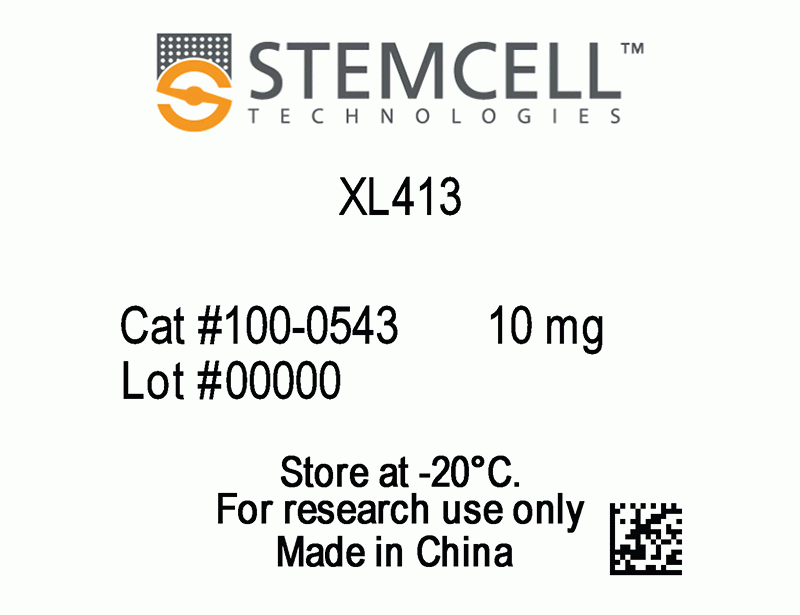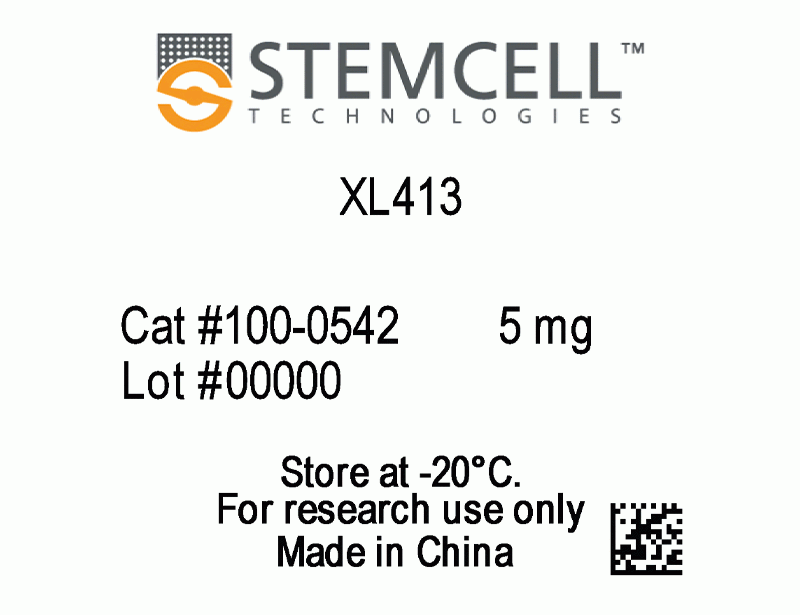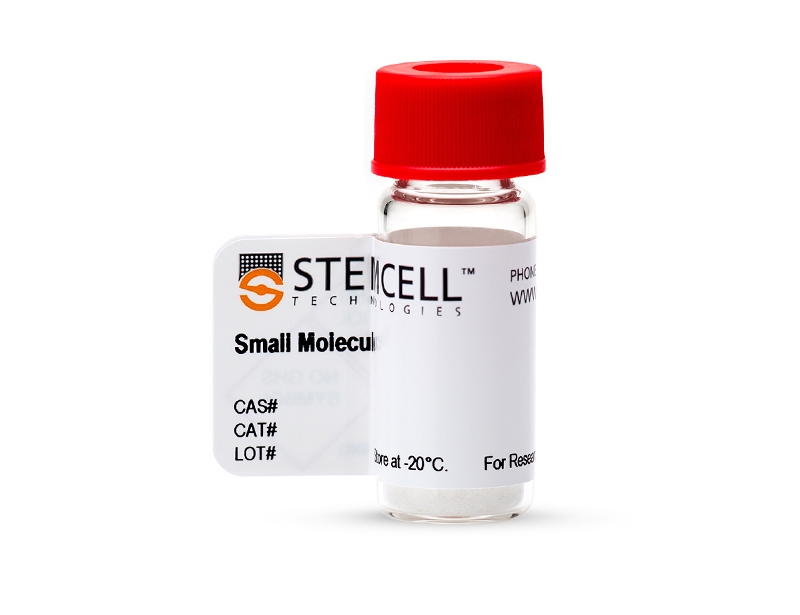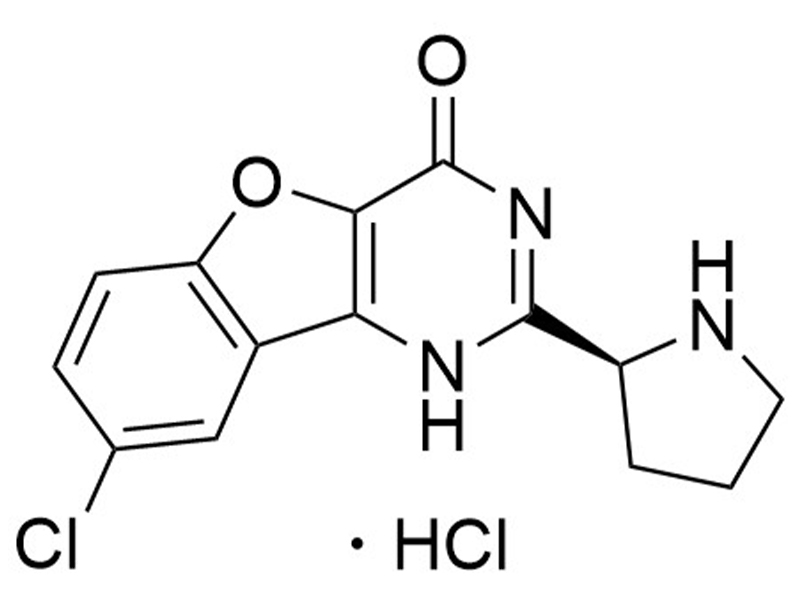概要
XL413 selectively inhibits the cell division cycle 7 (CDC7) kinase (IC50 = 3.4 nM), which is involved in the initiation and maintenance of DNA replication (Koltun et al.). XL413 displays selectivity for CDC7 kinase over a panel of 100 kinases (Sasi et al.). This product is supplied as the hydrochloride salt of the molecule.
CANCER RESEARCH
· Induces apoptosis and inhibits the proliferation of human colon adenocarcinoma cells in vitro (Koltun et al.).
· Attenuates tumor growth in mice (Koltun et al.).
CANCER RESEARCH
· Induces apoptosis and inhibits the proliferation of human colon adenocarcinoma cells in vitro (Koltun et al.).
· Attenuates tumor growth in mice (Koltun et al.).
技术资料
| Document Type | 产品名称 | Catalog # | Lot # | 语言 |
|---|---|---|---|---|
| Product Information Sheet | XL413 (Hydrochloride) | 100-0542, 100-0543 | All | English |
| Safety Data Sheet | XL413 (Hydrochloride) | 100-0542, 100-0543 | All | English |
数据及文献
Publications (2)
PloS one 2014
The potent Cdc7-Dbf4 (DDK) kinase inhibitor XL413 has limited activity in many cancer cell lines and discovery of potential new DDK inhibitor scaffolds.
Abstract
Abstract
Cdc7-Dbf4 kinase or DDK (Dbf4-dependent kinase) is required to initiate DNA replication by phosphorylating and activating the replicative Mcm2-7 DNA helicase. DDK is overexpressed in many tumor cells and is an emerging chemotherapeutic target since DDK inhibition causes apoptosis of diverse cancer cell types but not of normal cells. PHA-767491 and XL413 are among a number of potent DDK inhibitors with low nanomolar IC50 values against the purified kinase. Although XL413 is highly selective for DDK, its activity has not been extensively characterized on cell lines. We measured anti-proliferative and apoptotic effects of XL413 on a panel of tumor cell lines compared to PHA-767491, whose activity is well characterized. Both compounds were effective biochemical DDK inhibitors but surprisingly, their activities in cell lines were highly divergent. Unlike PHA-767491, XL413 had significant anti-proliferative activity against only one of the ten cell lines tested. Since XL413 did not effectively inhibit DDK in multiple cell lines, this compound likely has limited bioavailability. To identify potential leads for additional DDK inhibitors, we also tested the cross-reactivity of ∼400 known kinase inhibitors against DDK using a DDK thermal stability shift assay (TSA). We identified 11 compounds that significantly stabilized DDK. Several inhibited DDK with comparable potency to PHA-767491, including Chk1 and PKR kinase inhibitors, but had divergent chemical scaffolds from known DDK inhibitors. Taken together, these data show that several well-known kinase inhibitors cross-react with DDK and also highlight the opportunity to design additional specific, biologically active DDK inhibitors for use as chemotherapeutic agents.
Bioorganic {\&} medicinal chemistry letters 2012 jun
Discovery of XL413, a potent and selective CDC7 inhibitor.
Abstract
Abstract
CDC7 is a serine/threonine kinase that has been shown to be required for the initiation and maintenance of DNA replication. Up-regulation of CDC7 is detected in multiple tumor cell lines, with inhibition of CDC7 resulting in cell cycle arrest. In this paper, we disclose the discovery of a potent and selective CDC7 inhibitor, XL413 (14), which was advanced into Phase 1 clinical trials. Starting from advanced lead 3, described in a preceding communication, we optimized the CDC7 potency and selectivity to demonstrate in vitro CDC7 dependent cell cycle arrest and in vivo tumor growth inhibition in a Colo-205 xenograft model.

 网站首页
网站首页





